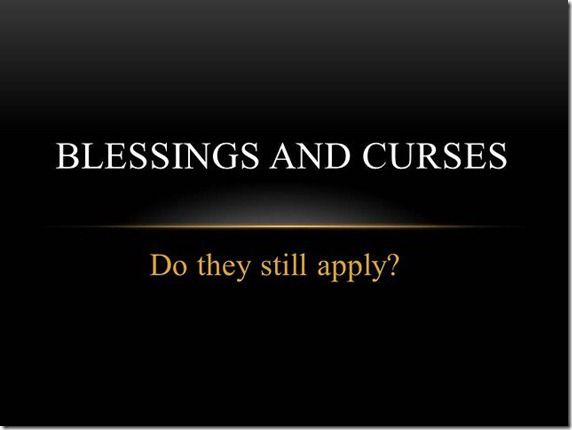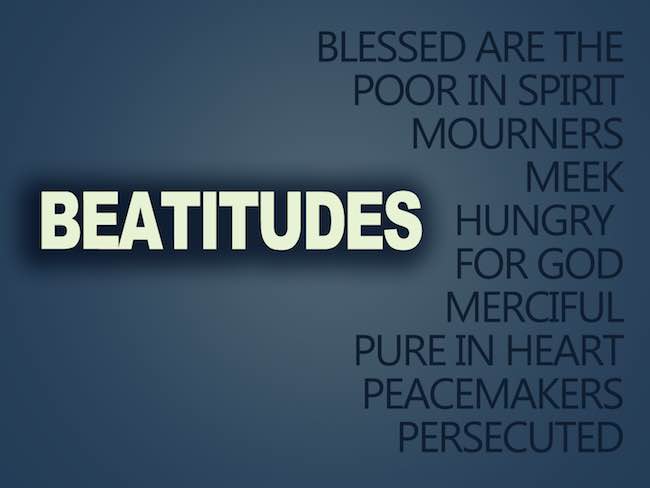As many of you know, the celebration of the Sabbath is very important to me. I generally host a Sabbath celebration every Friday evening and I often have various tourist groups from around the world join me around the table. During our time together we always discuss the weekly Torah Portion.
Something interesting that I’ve learned throughout the years of hosting various groups is that many Christians understand the Old Testament in light of the New Testament instead of the other way around. The majority of Christians generally know the New Testament well but have a vague understanding of the Old Testament and sometimes try to force a narrative of the Old Testament from a New Testament perspective. It is similar to the well-known Sunday school joke that the answer to 99% of the questions is “Jesus.”
An example of this “reverse testament” thinking is when I ask my guests around the Sabbath table about the meaning and symbolism of wine in the Bible as I try to explain the meaning of the cup of wine for the Sabbath. The majority of Christians will answer that the wine represents the blood of Yeshua. While this answer may work in Sunday school, it doesn’t work at the Sabbath table. I’m always quick to respond that the cup of wine that Yeshua spoke of in regard to His blood was the third cup of wine at Passover, biblically however, wine generally symbolizes joy (Ecclesiastes 9:7) and sometimes wrath (Jer. 25:15).
We need to be a people of the Book and interpret the Word of God properly and not simply force our preconceived ideas upon it. I believe that this is especially important as we study the New Testament in light of the Old Testament and not the other way around. We will use this method as we study this week’s Torah Portion.
Watch this short video of this week’s commentary
The Blessings & The Curses
As we approach the end of the book of Deuteronomy and the conclusion of the Torah we read the famous “Blessings and Curses,” which are detailed in this week’s Torah Portion, Deut. 26:1 – Deut. 29:9. The blessings and the curses are one of the ways that Moses gave a summary of the Torah and provided a clear choice for the people of Israel; to obey and live under the blessing of God or to disobey and live under the curse of God.
Immediately preceding the details of the blessings and curses are a few verses which provide a clear foundation of the covenantal relationship between God and the people of Israel:
This day the LORD your God commands you to do these statutes and ordinances. You shall therefore be careful to do them with all your heart and with all your soul. You have today declared the LORD to be your God, and that you would walk in His ways and keep His statutes, His commandments and His ordinances, and listen to His voice. The LORD has today declared you to be His people, a treasured possession, as He promised you, and that you should keep all His commandments; and that He will set you high above all nations which He has made, for praise, fame, and honor; and that you shall be a consecrated people to the LORD your God, as He has spoken. – Deut. 26:16-19
The blessings and curses were not an arbitrary set of rules to be kept. Instead, they provided specific criteria that God demanded of the children of Israel to uphold His holy Name as they entered into a unique relationship with Him through national representation.
The Covenant between God and Man
The word “declared” is used twice in the above verses; both in reference to the relationship of the people of Israel with the LORD. This word for “declared” in the Hebrew is “האמרת” – “he’ehmarta” and “האמירך” – “he’ehmircha,” as they appear in verses 17 and 18 respectively. This form of the Hebrew word only occurs here in these two verses in all of the Taanak (The Old Testament). It appears to be a form of the word “אמר” – “amar” – “to say,” “to utter,” or “to declare.” In these two verses there is a mutual declaration of relationship between God and His people in reference to His commandments and listening to His voice.
In this mutual declaration, the LORD Himself separated the nation of Israel from all other nations and declared them to be His special people. The Israelites were also acknowledging that the LORD alone is God and they were agreeing to be His people.
The children of Israel were called “a treasured possession” of the LORD and it is also stated that they would be raised “high above all nations which He has made” (Deut. 26:19). The Israelites were chosen to be an exalted nation and with their position they were to be “עם קדוש ליהוה” – “Am kadosh la’Adonai” – “a holy people to the LORD” (Deut. 26:19). The special and exalted position of the nation of Israel with the God of the universe carried with it a responsibility to be a holy people.
Instructions for the “Blessings & Curses”
Moses instructed the children of Israel of how they were to perform the blessings and curses after they entered the Land by having six of the tribes of Israel stand on Mount Gerizim and the other six tribes stand on Mt. Ebal. The Levites were then to read the blessings and the curses and the people were to answer in agreement by saying, “Amen!” (Deut. 27:11-14)
Although it seems that the blessings should be pronounced first followed by the curses, we immediately read a list of twelve curses as a result of not keeping twelve different commandments (Deut. 27:15-26). It is not clear why these twelve particular curses are listed, although some speculate that there are twelve curses in relation to the twelve tribes of Israel. These twelve curses are then followed in the next chapter by a detailed explanation of the blessings and the curses as a result of obedience or disobedience to all of the commands of God (Deut. 28).
Are the Blessings & Curses for Today?

As I was studying this week’s Torah Portion, with particular emphasis on the blessings and curses, I was reminded of the teachings of Yeshua from His “Sermon on the Mount.” In this famous sermon, Yeshua taught the Law to the people of His day with an authority which was obviously from God (Matt. 7:28). I don’t think it was coincidence that Yeshua taught from the top of a mountain (Matt. 5:1).
Throughout the “Sermon on the Mount,” Yeshua emphasized the blessing of obeying God’s Word and the curse of disobeying it. At the conclusion of the “Sermon on the Mount” Yeshua taught this parable to illustrate the blessings and the curses:
Therefore everyone who hears these words of Mine and acts on them, may be compared to a wise man who built his house on the rock. And the rain fell, and the floods came, and the winds blew and slammed against that house; and yet it did not fall, for it had been founded on the rock. Everyone who hears these words of Mine and does not act on them, will be like a foolish man who built his house on the sand. The rain fell, and the floods came, and the winds blew and slammed against that house; and it fell—and great was its fall. – Matt. 7:24-27
First of all, we see clearly here that Yeshua was equating His Words with the very Words of God. We also clearly see that there is a blessing in hearing and acting on the Words of God and there is a curse for those who hear and refuse to act on His Words.
Yeshua’s “Sermon on the Mount” corresponds in many ways to the “Blessings & Curses” of this week’s Torah Portion, however, Yeshua takes it to a higher spiritual level. I believe we see this from the very beginning of the “Sermon on the Mount.”
The Blessing & Curses in the New Covenant
The first thing that caught my attention as I compared the “Blessings and Curses” of Deuteronomy to the “Sermon on the Mount” is that in contrast to the list of curses in Deuteronomy 27:15-26, Yeshua began with a list of blessings:
- Blessed are the poor in spirit, for theirs is the kingdom of heaven.
- Blessed are those who mourn, for they shall be comforted.
- Blessed are the gentle, for they shall inherit the earth.
- Blessed are those who hunger and thirst for righteousness, for they shall be satisfied.
- Blessed are the merciful, for they shall receive mercy.
- Blessed are the pure in heart, for they shall see God.
- Blessed are the peacemakers, for they shall be called sons of God.
- Blessed are those who have been persecuted for the sake of righteousness, for theirs is the kingdom of heaven.
- Blessed are you when people insult you and persecute you, and falsely say all kinds of evil against you because of Me. Rejoice and be glad, for your reward in heaven is great; for in the same way they persecuted the prophets who were before you. – Matt. 5:3-12
Yeshua invited His listeners to walk with God in all of His blessings through being the people that God has called them to be. Yeshua did not focus on specific commands in this list, but rather, He focused on a lifestyle and spiritual walk that is a result of obeying God’s commands. Yeshua brought the Law of God to a deeper level for the people.
Another significant difference that we can observe in Yeshua’s teaching is the outcome of obedience to His commands. The blessings and curses of Deuteronomy 28 are mostly physical in nature and are connected to physical health along with agricultural productivity and fruitfulness in the Land of Israel. On the other hand, the blessings and curses that Yeshua taught in His Sermon on the Mount are mostly spiritual in nature, as we read in the list of “Beattitudes” and throughout His sermon (Matt. 5:30). Yeshua was focused on the Kingdom of God and not just on the Kingdom of Israel.

The Fulfillment of the Law & the Prophets
It could be interpreted that Yeshua was negating the Law of God and instituting a different Law than the one given through Moses, however, Yeshua clarified that this was not His intent. Shortly after the list of “Beattitudes,” Yeshua made this statement about the Law:
Do not think that I came to abolish the Law or the Prophets; I did not come to abolish but to fulfill. For truly I say to you, until heaven and earth pass away, not the smallest letter or stroke shall pass from the Law until all is accomplished. – Matt. 5:17-18
While confirming and establishing the Law of God, Yeshua was breathing fresh life into the Law and teaching a deeper spiritual meaning that God intended in the Law and the Prophets.
In the second half of Matthew chapter five, Yeshua quoted various commands from the Old Testament and made the intent of the commands a reality to each person. Yeshua equated anger to murder (Matt. 5:21-22) and lust to adultery (Matt. 5:27-28). Yeshua took individual commands of the Law and reminded His listeners of the blessing and the curse of either obeying or disobeying His Word.
A Righteousness Beyond Religion
Yeshua came into the world to take the Jewish people to a higher level with God. He did not want them to be content with living in the Land of Israel but to seek to enter into the Kingdom of God:
For I say to you that unless your righteousness surpasses that of the scribes and Pharisees, you will not enter the kingdom of heaven. – Matt. 5:20
Through this statement Yeshua exposed the hypocrisy of living a spiritual life that solely depended on a list of does and don’ts. Throughout His “Sermon on the Mount” Yeshua focused on the deeper relationship with God that was intended from the very beginning (Deut. 26:16-19). God’s Law was based on relationship with Him and Yeshua came to illustrate this with His life and through His teaching.
The Light of the World
Just as God had selected the people of Israel to be a treasured possession, an honored nation, and an exalted people to display His holiness to the world, so Yeshua also declared that we are called to be a conduit of the glory of God to the world around us:
You are the light of the world. A city set on a hill cannot be hidden; nor does anyone light a lamp and put it under a basket, but on the lampstand, and it gives light to all who are in the house. Let your light shine before men in such a way that they may see your good works, and glorify your Father who is in heaven. – Matt. 5:14-16
Our righteousness was never meant to be something that we boast in and seek glory for ourselves. We are called to be the people of God in order to bring glory to the Father in heaven.

A Higher Calling
God’s Word was never meant to simply be a checklist that leads to prosperity but rather a written guide that reveals the path of holiness. God has been calling mankind, Jew and Gentile alike, back to Himself ever since the fall of Adam and Eve. We are called to walk in holiness according to God’s Word and to walk in relationship with the Father in heaven.
Throughout the “Sermon on the Mount,” Yeshua challenged His listeners not to settle for mediocrity but to pursue the higher calling of being like the Father in heaven: “Therefore you are to be perfect, as your heavenly Father is perfect.” (Matt. 5:48) The Greek word for perfect in this verse means to be mature, complete, or full-grown.
Yeshua’s Words challenge us not to settle for the standards in this world but to live by the standards that have been established for us by our heavenly Father. We are called to a higher standard of maturity in the faith that will cause us to be a light to those around us for the glory of the Father. We must strive, in the Holy Spirit, to walk according to the higher calling of Yeshua.
Shabbat Shalom!
If you enjoyed reading this article, share it today with friends! We also invite you to sign up for our weekly Torah Portion commentary on the sidebar to the right.
Help keep our weekly commentaries free and available to all. Click here to donate today:
Torah Portion: Deut. 26:1 – Deut. 29:9
Haftara: Isaiah 60:1-22
Return to Torah Portion Homepage
Copyright Jewels of Judaism. All rights reserved 2016



Beautiful. Thank you Daniel. I am so aware this week of how we are compelled by His goodness to obey, and, by His faithfulness enabled to obey. A beautiful understanding of our Lord’s work (word) now enabled with the perfecting power of the wonderful Holy Spirit! How we begin to love the Law! Shabbat Shalom! Tanya
Hi Daniel, I appreciated that you pointed out that at the very beginning of the list of curses and blessings, the relationship between God and His people is emphasized. This is so important for us to see that there is no differences between two Testaments. What God desires in the New Testament is the same in the Old Testament–His relationship with us. But so often we miss our focus and misunderstand His message to us, we especially misunderstand the Old Testament a lot. I find your commentaries do help me to have a deeper understanding of Torah. Thanks again of your effort and time. 🙂
Thank you Nancy. The positive feedback is very helpful.
Daniel